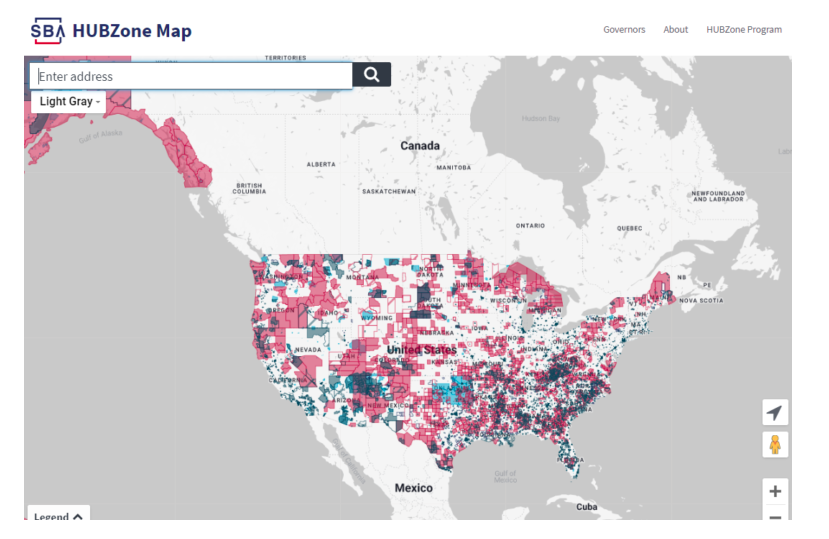How do HubZone Small Businesses impact Economically Disadvantaged Communities?
HUBZone small businesses play a critical role in economically disadvantaged communities by providing job opportunities, promoting local business growth, and retaining federal dollars within the communities where they are located.
Let's first show you how to check your Address in the HUBZone Map
https://www.sba.gov/federal-contracting/contracting-assistance-programs/hubzone-program
Here’s how these HUBZone businesses can alleviate poverty and stimulate local economies, especially in cities with high minority populations:
- Job Creation and Skill Development: HUBZone businesses are required to employ at least 35% of their workforce from within the designated HUBZone, creating job opportunities in areas with high unemployment rates. This helps local residents gain skills and experience, often leading to higher-paying jobs or career advancement opportunities. Employing locals also strengthens the community’s economic stability by circulating money directly back into the local economy.
- Local Economic Stimulation: By receiving government contracts, HUBZone businesses bring federal funding directly into their communities. This funding helps generate revenue that can lead to further investment in local infrastructure, new businesses, and essential services. The concentration of resources within HUBZone areas can stimulate growth in other local businesses, from suppliers to service providers, creating a ripple effect across the local economy.
- Boosting Minority Entrepreneurship: Many HUBZone businesses are minority-owned, and the program provides an avenue for these entrepreneurs to secure government contracts that might otherwise be dominated by larger companies. This support helps grow a more diverse business landscape, creating new generational wealth opportunities in minority-majority communities.
- Retention of Federal Funds in the Community: When HUBZone businesses secure contracts, they ensure that federal funding allocated to these communities stays local. This is especially beneficial in cities with high minority populations, as it allows them to capture and use resources that might otherwise go unspent or diverted outside the region. This retention is critical near the end of the federal fiscal year, as it ensures funds are efficiently used rather than returned to the general pool.
- Community Infrastructure and Service Improvement: As HUBZone businesses grow, they often contribute indirectly to the improvement of public infrastructure, whether through supporting local vendors, attracting other businesses, or directly reinvesting in community services. This can be particularly impactful in cities with a majority Black population, where systemic underinvestment has historically hindered growth. Local success stories can lead to increased confidence in the area, inspiring more investments in public transportation, education, and housing.
Impact in Specific Cities
The impact varies by city due to factors like existing economic conditions, community engagement, and local policies. However, many cities with significant minority populations, like Baltimore, Detroit, New Orleans, and Atlanta, have reported tangible benefits from the HUBZone program. These cities have historically faced higher levels of poverty, unemployment, and infrastructure challenges, making HUBZone investments especially impactful. While it's not a silver bullet, the HUBZone program can complement other city and federal initiatives aimed at revitalizing these areas.
Challenges remain, such as ensuring these businesses have ongoing support and access to resources to grow sustainably. Additionally, expanding awareness and accessibility of the HUBZone program can help cities maximize its benefits, ensuring that more local businesses are in a position to take advantage of government contracts.
